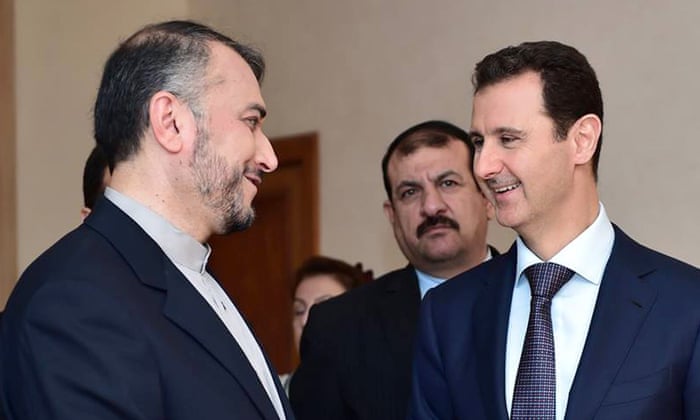
Saudi Arabia working to impress Donald Trump on his first overseas visit
Thursday, May 18, 2017
No comments
Trump’s decision to make Saudi Arabia his first overseas stop sends a powerful message to the kingdom: the strained ties that marked U.S.-Saudi relations under President Barack Obama are over.
Saudi Arabia is making every effort to dazzle and impress President Donald Trump on his first overseas trip, seizing on the visit to cement itself as a major player on the world stage and shove aside rival Iran.
The kingdom has arranged a dizzying schedule of events for the two days Trump will be in town — inviting figures as varied as Sudanese President Omar al-Bashir, who has been indicted for war crimes by the International Criminal Court, Bret Baier, a host on the Fox News Channel that is popular with Trump and his supporters, and American country singer Toby Keith who is to perform for a male-only crowd in the Saudi capital, Riyadh.
Trump’s decision to make Saudi Arabia his first overseas stop sends a powerful message to the kingdom: the strained ties that marked U.S.-Saudi relations under President Barack Obama are over.
The kingdom wants Trump to align U.S. interests with Saudi Arabia’s — and is literally counting down the seconds until Trump starts his meetings Saturday. A website for the visit was launched in English, Arabic and French, featuring a countdown clock under the banner: “Together We Prevail.”
“The foundation will be laid for a new beginning” to confront extremist ideology, the website declares, while also touting Saudi Arabia’s Vision 2030 a wide-reaching reform plan launched by King Salman’s ambitious son, Deputy Crown Prince Mohammed bin Salman, to overhaul the economy and restyle the country through greater openings for investment and entertainment. source
Saudi Arabia is making every effort to dazzle and impress President Donald Trump on his first overseas trip, seizing on the visit to cement itself as a major player on the world stage and shove aside rival Iran.
The kingdom has arranged a dizzying schedule of events for the two days Trump will be in town — inviting figures as varied as Sudanese President Omar al-Bashir, who has been indicted for war crimes by the International Criminal Court, Bret Baier, a host on the Fox News Channel that is popular with Trump and his supporters, and American country singer Toby Keith who is to perform for a male-only crowd in the Saudi capital, Riyadh.
Trump’s decision to make Saudi Arabia his first overseas stop sends a powerful message to the kingdom: the strained ties that marked U.S.-Saudi relations under President Barack Obama are over.
The kingdom wants Trump to align U.S. interests with Saudi Arabia’s — and is literally counting down the seconds until Trump starts his meetings Saturday. A website for the visit was launched in English, Arabic and French, featuring a countdown clock under the banner: “Together We Prevail.”
“The foundation will be laid for a new beginning” to confront extremist ideology, the website declares, while also touting Saudi Arabia’s Vision 2030 a wide-reaching reform plan launched by King Salman’s ambitious son, Deputy Crown Prince Mohammed bin Salman, to overhaul the economy and restyle the country through greater openings for investment and entertainment. source























































